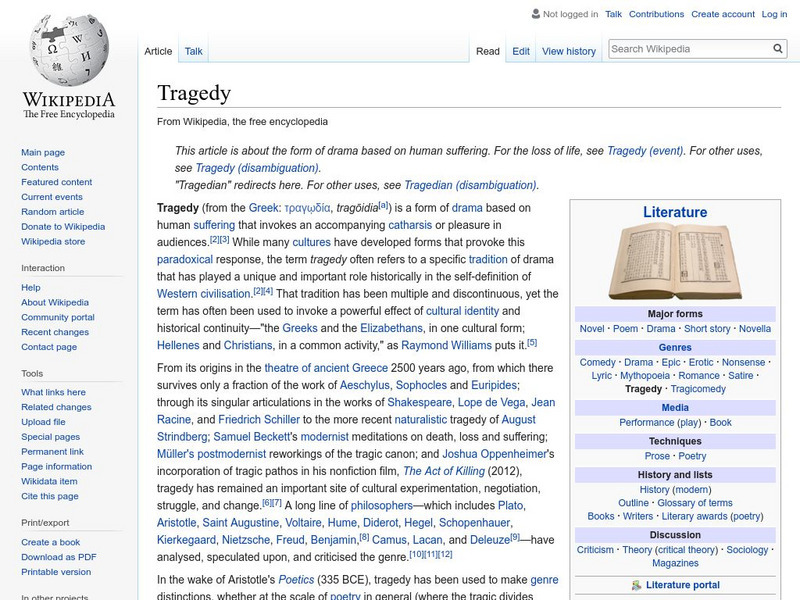Hi, what do you want to do?
Read Works
Read Works: Ancient Greece Greek Drama
[Free Registration/Login Required] An informational text about the birth of theater in ancient Greece. A question sheet is available to help students build skills in reading comprehension.
Other
Ancient Greek Theatre: Sophocles
A personal site on Greek theatre with a brief biography of Sophocles, along with a short list of his works and summaries of each.
Massachusetts Institute of Technology
Mit: Internet Classics Archive: Medea (Euripides)
MIT offers an online version of the classical play "Medea" by the Greek playwright Euripides.
Steven Kreis, PhD
The History Guide: Classical Greece, 500 323 b.c.
Read about the Persian invasion of Greece, the Age of Pericles, the Peloponnesian War, and the culture of Classical Greece.
Massachusetts Institute of Technology
Mit: Internet Classics Archive: Agamemnon, by Aeschylus
Aeschylus' famous play, Agamemnon, was written in 458 BCE. The full text available here provides an important perspective on the figure of Agmamemnon in ancient Greek culture.
Wikimedia
Wikipedia: Tragedy
This encyclopedia entry from Wikipedia about tragedies discusses its Greek origins; the typical characteristics of a tragedy; and lists some examples of ancient Greek, Roman, English, and modern-day writers of tragedies.
TED Talks
Ted: Ted Ed: Why Is Aristophanes Called the Father of Comedy?
Aristophanes, often referred to as the Father of Comedy, wrote the world's earliest surviving comic dramas. Mark Robinson shares a brief history of Aristophanes.
Blackdog Media
Classic Reader: The Clouds by Aristophanes
This is the full text of the play The Clouds by Aristophanes including a list of characters and the setting.
Massachusetts Institute of Technology
Mit: Internet Classics Archive: Heracles by Euripides
MIT's Internet Classics Archive offers a complete text of the famous tragedy by Euripides.
Massachusetts Institute of Technology
Mit: Internet Classics Archive: The Persians by Aeschylus
This MIT Internet Classics Archives page is a translation of "The Persians" in an easy-to-read format, maintaining the verse format of the original.














